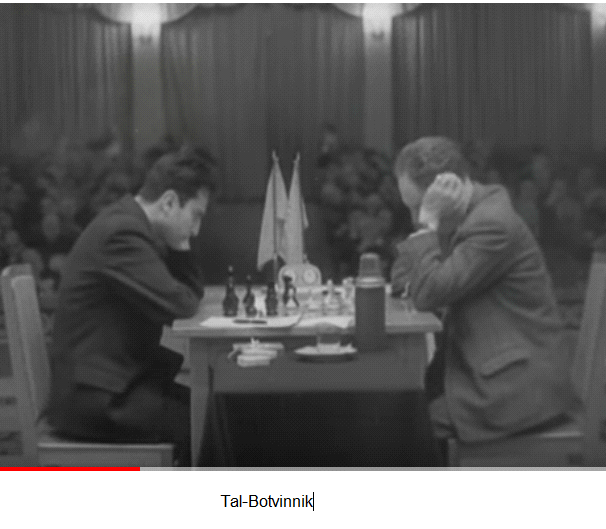More technical problems than usual for this last session of 2018, with, in addition to the cuts, the "chopping" of the sound and the Madrasis freezes.
As a result, the fairy part is even shorter than the previous course.
Below is the Master's report
Master's words


"You are beautiful! -- It seems! -- No, it appears!" (S. Guitry).
"Are you yawning? Are you bored with me? -- It's not that, but as you and I are one, I get bored when I'm alone" (A. de Rivarol answering his wife).
"A great civilisation is not conquered from without, until it is destroyed from within" (W. Durant).
"A people that elects corrupt, renegades, impostors, thieves and traitors is not a victim, but an accomplice" (G. Orwell).
"If we put a red dot on the head of every idiot, the world would look like a field of poppies" (M. Audiard).

"Your generosity is misunderstood, try a little selfishness".
"If after a game I'm not tired, that's a bad sign. If I am exhausted, then everything is in order. After my game against Capablanca [1938] I was unable to stand up" (M. Botvinnik).
Blunderbuss. Heard recently a personage, believing himself important in the chess world, to say that Philidor, in short, was bad politically. Would you believe it, he was a Royalist, which in 1788 was a very original thing to say. Worse, go figure, he dared to flee the revolutionary turmoil. It would certainly have been entertaining to see our bloated man transplanted to this period, as in the Fernandel film, and to see him as a sans-culotte, mauled by the Robespierrists or others. He has probably never heard of J. de Maistre, L. de Bonald, R. de La Tour du Pin, A. de Rivarol or, let us be gentleman, Ed. Burke.
Fortunately, on the same medium, a talented young lady reminded that luck plays a great role in Chess tournaments (and, I add, in composition) by giving two clear examples, after Donner, Beliavsky and so many others (quotations on request).
Even limiting ourselves to our Chess microcosm, and to the only technical interventions, concerning endgames and others, I am often reproached to criticize some of my contemporaries, sometimes severely. By doing so, one does not go all the way to refute, or even try to do it, the said criticisms. And when one does protest, it is not directed against them, but against the person making them. Which tends to make me believe that they are justified. And thus to make me persevere in this alleged flaw!
A mate in 3 from the 18th century, intended for players rather than problem solvers: despite its 4 (!) variations, it looks like a game played on Saturday afternoon in the circle. Then a real game where Black admits defeat instead of mating or, failing that, drawing.
Don't miss the nice ZZ with Bishop & Knight against two pawns, which will end with a well known fortress with the same Bishop & Knight, against a Queen. A festival of forks for enfilades, with triple echo and... a little extra. It is signed by the world number 1.
A skein with rook and pawn in each side. The monster makes some inhuman moves, but the whole thing is very understandable. He gives us an echo-chameleon with an example from almost two years ago, see Taïmanov-Larsen (after the 55th move) in http://lecoursdumaitre.e-monsite.com/en/pages/cours/cat-2017/january-17-2017.html. A useful lesson is the notion of the "golden mean": the defensive King has 3 moves of a file at his disposal, but the central square will leave him more choice. We also find a theme dear to the problemists: the horizontal-vertical correspondence, about the cuts of the Black King by the White Rook.
Homework for January: a tactical festival, a choice of a good square for the Bishop, finally a Rook + Knight against Rook and pawns.


Tal-Botvinnik: the premiere of the match, which impressed me so much (at the tender age of 14) a few days after it had taken place (perfect live coverage only existed for the spectators in the hall at the time). Then the years, or rather decades, passed. I now have a strange feeling: the whole important phase, introduced by what appeared to me astonishing, the famous 11 Kd1!!?, lasts in fact only 8 moves, since after 18 h4! it is folded... Eight moves of a certain density, certainly. Let us note, there too, an echo-chameleon at moves 13 & 14.
And the 6th game: chess-poker. The wizard of Riga simply transforms a loss into a gain (see the 25th move). And this thanks to... a horizontal rook move, of which we saw some samples in the previous game! Have fun.
Coincidentally, the three moves of the King on the same file come back in the second fairy tale.
Practice: some easy 2-mates, then some not so easy 2-mates. A 3# given at the 2017 Lithuanian championship, another at the Slovakian one. A fun 4#, quite easy. The 5# is a classic illustrating the theme invented by the author. In the 6#, the same figure does all the work.
The helpmate 2# has a twin with, of course, echoing mats. In the 3#, it is a strategy echo. In the 5# helpmate, the mate board can be guessed, it remains to be manoeuvred. Finally a very affordable 5# selfmate.
Have a good time. See you in January if Deus vult.
PS: Oleg Pervakov, world number 1 in study composition, honoured me with a 4th prize for my 2016 Rpp/Rpp (see "moï etyudy"). Would he have bet to change my mind about the judges?

Add a comment